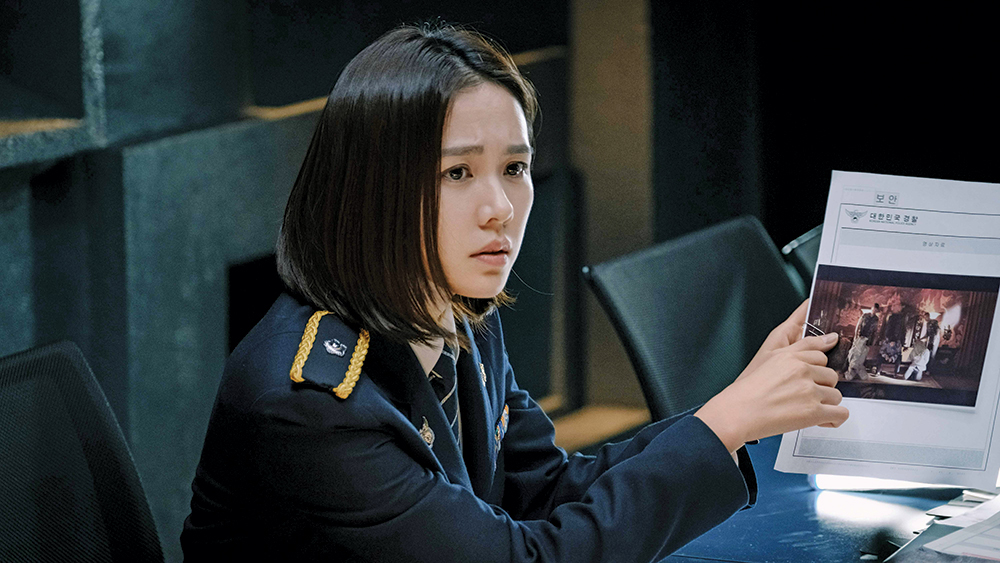Big Movies Saturate Korean Cinemas Over Holiday, Damaging the Box Office
By Sonia Kil
LOS ANGELES (Variety.com) – The outlook for South Korea’s film box office business is decidedly guarded. Over Chuseok holiday period, overall sales increased but business ended up being a zero-sum game.
According to the Korean Film Council’s report, box office managed to sell almost 32% more tickets in September, compared to the same month a year ago. That’s partly because of the holiday, which fell in October in 2017.
Kofic’s box office tracking service Kobis showed that the number of admissions in local theaters was up about 4 million to 16.81 million in September, with revenues up by 42% to $127 million. The number of admissions for homegrown titles grew by 5.78 million to 11.76 million, with revenues increased by 113.6% to $88.23 million.
Big homegrown films release during the holiday week in all likelihood contributed to the hike. Over the past few years, the Chuseok holiday season has grown to one of the peak seasons for the South Korean box office, especially for domestic fare. In 2012, the Lee Byung-hun-starring costume drama “Masquerade” led the Chuseok box office and crossed the 10 million admissions mark. Afterward, tentpole films such as “The Face Reader” (2013), “The Throne” (2015), “The Age of Shadows” (2016) and “The Outlaws” (2017) were released during the holiday period and became hits. The only Chuseok release that did not manage to sell 5 million tickets was “Tazza — The Hidden Card” in 2015.
This year was no exception. Some of the country’s top distributors, including CJ Entertainment, Lotte Cultureworks, Megabox and Next Entertainment World released mega-budget titles involving high-profile casts during the period, including “Monstrum,” “The Negotiation” (pictured above), “Fengshui” and “The Great Battle.” Apart from “Monstrum,” which opened in theaters a week ahead of the Chuseok season, “Negotiation,” “Fengshui” and “Great Battle” all opened on the same day (Sept. 19).
Such a release pattern is seen as one of the major reasons for the zero-sum game. The four films cost almost twice the average budget for local productions. Big budget means a higher break-even point. Among the four titles, however, only “Great Battle” managed to make profit at the box office.
“Monstrum” kicked off the race. The period monster actioner opened Sept. 12 and ended up grossing $5.34 million from 723,000 admissions. CJ Entertainment’s “Negotiation” centers on a story of a negotiator from the Seoul Metropolitan Police Agency’s crisis negotiating team and an arms dealer who kidnaps two Koreans hostages. The film is known to have been made with a budget of $8.8 million. It finished its theatrical run with $14.88 million box office gross from 1.96 million admissions.
Another costume drama, Megabox’s “Fengshui,” cost some $10.5 million, but has only grossed $15.64 million from 2.08 million admissions and has been pushed out of the top 10 chart at the box office. Made with $19.25 million, Next Entertainment World’s “Great Battle” was the most expensive film of the season. According to Next Entertainment World, “Great Battle” crossed the breakeven point as of Oct. 22. It has grossed $40.49 million from 5.43 million admissions.
“Although ‘Great Battle’ has won the holiday battle, its triumph was not an overwhelming victory,” a local exhibitor told Variety on the condition of anonymity. “Too many big-budget films were released all together. In order to make profit at the box office, films like ‘Monstrum,’ ‘Negotiation’ and ‘Fengshui’ had to sell more than 3 million tickets, but the market cannot afford multiple big movies in the same season.”
The reason behind such excessive competition is simple: there are too many films with budgets over $9 million. The return on investment by Korean commercial films has been in the black since 2012. In 2016, the average rate of return was as high as 17.6%, but almost entirely owing to big-budget films — and 80% of those big films made a profit, with an average rate of return of 40.9%, whereas films made with budgets less than $4.38 million made negative earnings.
As a result, in 2017, the number of big-budget films grew from five to eight, and, in parallel, their average production budget increased from $11 million to $12.87 million. Their average rate of return was about 39.3%. This means that films such as “Monstrum,” “Negotiation,” “Fengshui” and “Great Battle” were not only supposed to reach the break-even point, but also make up for the loss, or low profit, from smaller films this year. However, since all four films were released on the same weekend they failed to do so.
“Another problem is that many tentpole films tend to stick to the formula for hit films from the past,” the source told Variety. “Since ‘King and the Clown’ and ‘Masquerade,’ costume dramas with a star cast and a light touch of comedy have been prevalent among the big holiday films, and audience might be getting tired of many similar films dominating cinema screens.”

